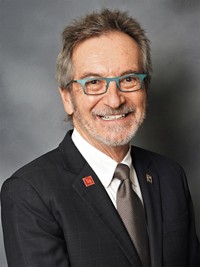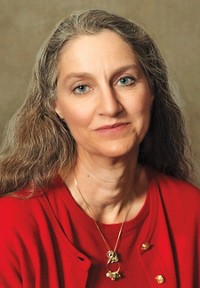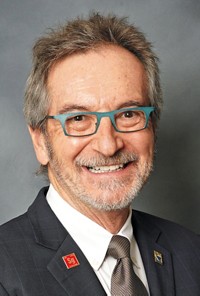Advertisement
Grab your lab coat. Let's get started
Welcome!
Welcome!
Create an account below to get 6 C&EN articles per month, receive newsletters and more - all free.
It seems this is your first time logging in online. Please enter the following information to continue.
As an ACS member you automatically get access to this site. All we need is few more details to create your reading experience.
Not you? Sign in with a different account.
Not you? Sign in with a different account.
ERROR 1
ERROR 1
ERROR 2
ERROR 2
ERROR 2
ERROR 2
ERROR 2
Password and Confirm password must match.
If you have an ACS member number, please enter it here so we can link this account to your membership. (optional)
ERROR 2
ACS values your privacy. By submitting your information, you are gaining access to C&EN and subscribing to our weekly newsletter. We use the information you provide to make your reading experience better, and we will never sell your data to third party members.
Policy
The Inner Workings of the Board
by JAMES D. BURKE, CHAIR, BOARD OF DIRECTORS
February 28, 2005
| A version of this story appeared in
Volume 83, Issue 9
I want to share with you some thoughts on the role, makeup, and operations of the American Chemical Society's Board of Directors. The ACS constitution gives the board a broad mandate: to "have, hold, and administer all the property, funds, and affairs of the society." That is a significant responsibility and large delegation of trust in any organization, let alone one with more than 158,000 members and an annual budget exceeding $400 million.
DIFFERENT ROADS. Our 16 members have taken different roads to the board. Half come primarily from industrial backgrounds. Five come from academe. One is an attorney and a chemist. One works for a science and engineering organization. One works in a national laboratory. Nearly all were active in ACS governance before joining the board.
COMPLEXITY. Regardless of their paths, all new board members express surprise at the broad array of societal, membership, and financial issues that greet them at their first board meeting. The issues vary in complexity. Some are broad and far-reaching: What is the future of the chemical enterprise? How can we ally with other organizations to provide our members with the resources to flourish in the multidisciplinary workplace? Other issues go to the heart of our role as a membership society: How can we continually bring value to our members and attract more youth and diversity into our society and our profession? How do we match our programs and services to our members' true needs?
Finally, we focus on the needs of the organization to sustain itself financially: Are our financial guidelines appropriate? What are the threats to our primary and secondary publishing units, and how must we respond to them?
HETEROGENEITY. These complex issues require a board with a broad collection of expertise and backgrounds. Nominations & Elections Committee Chair Valerie J. Kuck said this well in her recent ACS Comment: The board needs individuals who "have familiarity with ACS efforts, broad business knowledge, a diversity of leadership experience, and a proven track record in making prudent choices" (C&EN, Nov. 22, 2004, page 109). A board that is homogeneous will never have enough resources and breadth of judgment to make difficult decisions capably. Hence, the varied backgrounds of board members noted above and the intellectual diversity that they bring are important assets.
WHOSE REPRESENTATIVES? Who elects us to the board, and whom do we represent? The ACS Council elects six of us as directors-at-large. The ACS members of the six specific geographic districts elect one director for each district. The three members of the presidential succession and the executive director are on the board ex officio--that is, by virtue of holding those offices.
In addressing the issues I mentioned, we must recognize our roles as board members. Who are our constituents? Are we like members of a legislature representing specific geographic constituencies, or do we represent the ACS Council itself? It is indeed true that the board is obliged to report on its activities to the ACS Council and other ACS members. As chair, I do that for my board colleagues at each council meeting and through a regular column in the Councilor Bulletin. It is also vital that we understand the views of our councilors and other members as we conduct our own activities on the board.
However, as I remind all new board members, we have authority only collectively; individually, we have none. We cannot be a loose collection of individual representatives who feel a duty and loyalty to one group or another. We are not a congress. Regardless of the group that elected us to the board, once elected we all serve the same constituencies: the entire ACS membership and others working with us to support and make successful the society and the professions it serves. No one has a special mandate.
We are bound and united as board members by common legal duties. We must put the best interests of the society first (duty of loyalty). We must exercise our best judgment in making decisions on behalf of the organization (duty of care). And we must be true to the society's governing documents and to ourselves in how we act (duty of fidelity). This doesn't mean that we must all think and act alike on the board. Doing so would negate the advantages our intellectual diversity brings to the business of the society. We strive for board unity, not uniformity.
OUR ROLE. The board provides oversight for society programs and activities, and it develops the policies that establish direction for the society to move forward. One advantage of having so many board members with extensive experiences within the society is their knowledge of how those entities operate. However, we must avoid getting involved in the details of the programs and activities with which we are familiar. It is important to let management manage and governance govern.
The right balance is needed between governance and management, because we partner with management to get things done. We are blessed with an exceptionally strong management team and skilled staff. However, the board fully recognizes that in this era of intense public scrutiny of private and nonprofit boards, we retain the ultimate responsibility and fiduciary duty for the society's welfare. Our goal is always to be the kind of hardworking and focused board that the members and staff of the ACS want and deserve.
Views expressed on this page are those of the author and not necessarily those of the ACS Board.






Join the conversation
Contact the reporter
Submit a Letter to the Editor for publication
Engage with us on Twitter